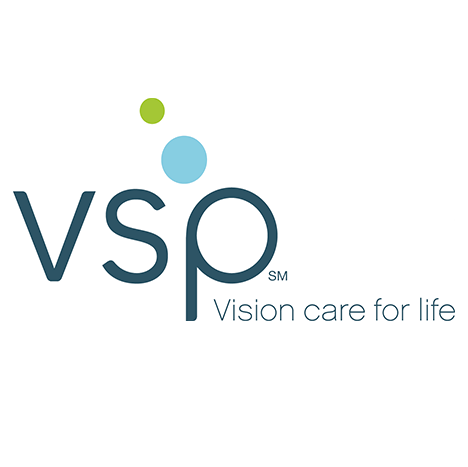Blog
5 reasons not to buy your eyeglasses online

It is safe to say that many people prefer shopping online to shopping in stores for many of their needs.
With technology constantly improving and evolving, people tend to take advantage of the convenience of shopping online. Whether it’s clothing, electronics, or even food, you can easily find almost everything you need on the Internet.
Eyeglasses, unfortunately, are no different. Many online shops have been popping up in recent years, offering people that same convenience. But what...
Eyes feel Like the Sahara Desert : What do I do?

Itching, burning, watering, red, irritated tired eyes... what is a person to do? The symptoms aforementioned are classic sign of Dry Eye Syndrome, affecting millions of adults and children. With increased screen time in all age groups, the symptoms are rising.
What causes this? One reason is that when we stare at a computer screen or phone too long, our blink reflex slows way down. A normal eye blinks 17,000 times per day. When our eye functions normally, the body produces enough tears to be symptom free, however, if you live in a geographical area that is dry, or has a high allergy rate, your symptoms could be worse.
Dry eye syndrome can be brought on by many factors: aging, geographical location, lid hygiene, contact lens wear, medications and dehydration. The lacrimal gland in the eye that produces tears, in a person over forty years old, starts slowly losing function. Females with hormonal changes have a higher incidence of DES (dry eye syndrome). Dry, arid climates or areas of extreme allergies lend to higher incidences of DES as well.
A condition of the eyelids, called blepharitis, can cause a dandruff like situation for the eye exacerbating a dry eye condition. Contact lenses can add to DES, so make sure you are in high oxygen contact lens material of you suffer from DES. Certain medications such as antihistamines, cholesterol and blood pressure meds, hormonal and birth control medication, and others may cause symptoms of a dry eye. Check with your pharmacist if you are not sure.
And finally, overall dehydration can cause DES. Some studies show we need 1/2 our body weight in ounces of water per day. For example, if you weigh 150 lbs, you need approximately 75 ounces of water per day to be fully hydrated. If you are not at that level, it could affect your eyes.
Treatment for DES is varied, but the main treatment is a tear supplement to replace the evaporated tears. These come in the form of topical ophthalmic artificial tears. Oral agents that can help are Omega 3 supplements such as fish oil or flax seed oil pills. They supplement the function of meibomian glands located at the lid margin. Ophthalmic gels used at night, as well as humidifiers, can add to moisturizing your eyes. Simply blinking hard more often can cause the lacrimal gland to produce more tears automatically.
For stubborn dry eyes, a method of retaining tears on the eye is called punctum plugs. They act like a stopper for a sink, they are painless and can be inserted by your eye care practitioner medically in the office. Moisture chamber goggles are used in severe dry eye patients to hydrate the eyes with their body’s own natural humidity. This may sound far out but it gets the job done.
Being aware of the symptoms and treatments for dry eye syndrome can prevent frustration, and allow your eyes to work more smoothly and efficiently in your daily routine. If your eyes feel dry as the Sahara, or the eyes water too much: know that help is on the way through proven techniques and products. You do not need to suffer needlessly in the case of Dry Eye Syndrome anymore.
The content of this blog cannot be reproduced or duplicated without the express written consent of Eye IQ.
The Three O's of Eye Care: Ophthalmologist, Optometrist and Optician

Knowing the difference between the various specialties in the eye care industry can be confusing, especially given the fact that they all start with the same letter and in many ways sound alike.
So, here’s a breakdown of the different monikers to make life a little less confusing for those wanting to get an eye exam.
Ophthalmologists
Ophthalmologists (pronounced “OFF-thal-mologists”) are eye doctors who went to four years of undergraduate university, four years of medical school and four to five years of ophthalmic residency training in the medical and surgical treatment of eye disease.
Many ophthalmologists then go on to pursue sub-specialty fellowships that can be an additional one to three years of education in areas such as cataract and refractive surgery, cornea and external disease, retina, oculoplastic surgery, pediatrics, and neuro-ophthalmology.
Ophthalmologists are licensed to perform eye surgery, treat eye diseases with eye drops or oral medications, and prescribe glasses and contact lenses.
Optometrists
Optometrists are eye doctors who went to undergraduate university for four years, then went on to optometry school for four years.
Many optometrists choose to pursue an additional year of residency after optometry school, though this is not a requirement for licensure. Optometrists are licensed in the medical treatment and management of eye disease, and prescribing glasses and contact lenses.
In some states, optometrists can perform certain minimally invasive laser surgical procedures, but on the whole, optometrists do not perform eye surgery. In addition, optometrists usually have different sub-specialties than ophthalmology, including vision therapy, specialty contact lenses, and low vision.
The analogy I use most often in comparing optometrists to ophthalmologists is that of a dentist and oral surgeon. Many people choose to have optometrists as their primary eye care provider and to undergo medical treatment of eye disease, but when surgery is needed, they are referred to the proper ophthalmologist.
Opticians
Opticians specialize in the fitting, adjustment, and measuring of eye glasses. Some states require that opticians are licensed, and others do not.
If you have any questions about which professional is the right fit for your needs, check with your eye-care professional’s office and they’ll be happy to answer them for you.
Article contributed by Dr. Jonathan Gerard
This blog provides general information and discussion about eye health and related subjects. The words and other content provided on this blog, and in any linked materials, are not intended and should not be construed as medical advice. If the reader or any other person has a medical concern, he or she should consult with an appropriately licensed physician. The content of this blog cannot be reproduced or duplicated without the express written consent of Eye IQ.
Read more: The Three O's of Eye Care: Ophthalmologist, Optometrist and Optician





